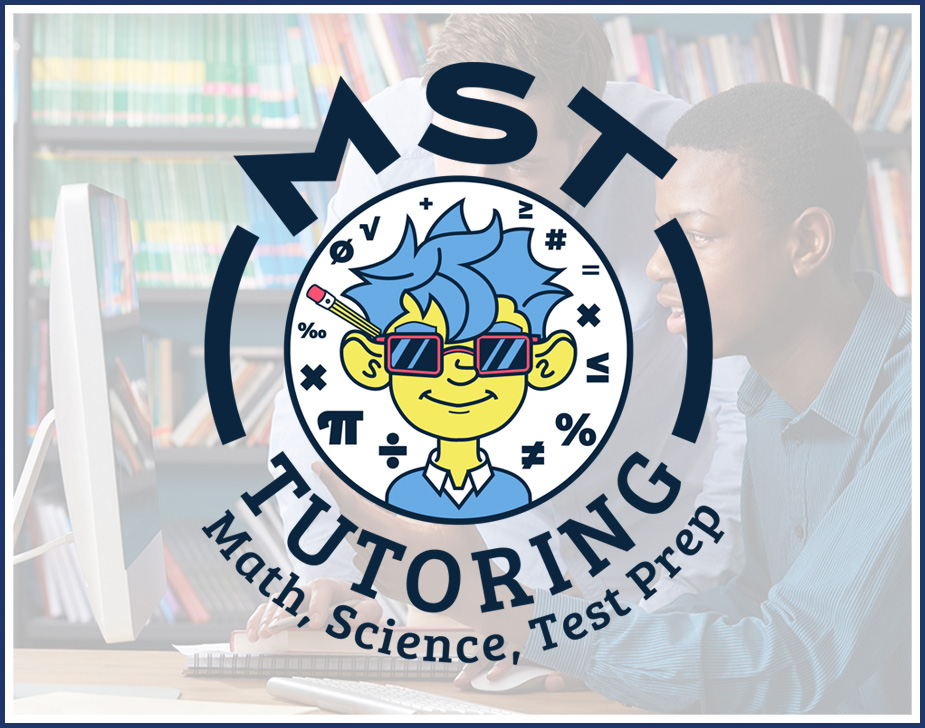
Table of Contents
The GRE (Graduate Record Examination) is a crucial step for students aspiring to enroll in graduate school. With competition for top-tier programs becoming increasingly fierce, achieving a high GRE score is more important than ever. Many test-takers struggle with the exam’s complexity, time constraints, and breadth of material. However, one of the most effective ways to maximize your score is by working with a private GRE tutor with a high success rate.
In this article, we will explore why private GRE tutoring is a game-changer, what sets high-quality tutors apart, and how personalized instruction can help you achieve your target score.
Why the GRE Matters
The GRE is a standardized test used by many graduate schools, business schools, and even law programs to assess applicants’ readiness for advanced study. Your GRE score can significantly impact your chances of acceptance into competitive programs, making it essential to prepare effectively.
The GRE consists of three main sections:
- Verbal Reasoning – Tests your ability to analyze written material, evaluate arguments, and understand complex vocabulary.
- Quantitative Reasoning – Assesses your problem-solving skills in arithmetic, algebra, geometry, and data analysis.
- Analytical Writing – Evaluates your ability to articulate complex ideas and construct well-supported arguments.
Because the GRE is adaptive, meaning questions get harder or easier based on your performance, strategic preparation is necessary to ensure you reach your full potential.
Why Choose a Private GRE Tutor Instead of Self-Study?
While some students attempt to prepare for the GRE using self-study materials, online courses, or group classes, these methods have limitations. A private GRE tutor with a high success rate provides customized strategies and targeted guidance that generic study methods simply can’t match.
1. Personalized Study Plan
A great GRE tutor tailors your study plan to focus on your strengths and weaknesses. Unlike a one-size-fits-all online course, private tutoring allows you to dedicate more time to the areas where you need the most improvement.
2. Efficient Use of Study Time
Many students waste time studying concepts they already understand while neglecting weaker areas. A skilled tutor helps you prioritize your efforts, ensuring you study efficiently and maximize your score in the shortest possible time.
3. Expert Test-Taking Strategies
Even students with strong academic backgrounds struggle with GRE timing and tricky question wording. A high-success-rate GRE tutor will teach you test-specific strategies, such as:
- How to approach tricky multiple-choice questions
- Time management techniques for each section
- Shortcut methods for solving complex math problems
- How to craft high-scoring analytical essays quickly
4. Accountability and Motivation
Sticking to a study schedule on your own can be challenging. A private tutor provides structured guidance, motivation, and accountability, ensuring that you stay on track and push yourself to perform at your best.
What Makes a Private GRE Tutor Highly Successful?
Not all GRE tutors are created equal. When looking for a private GRE tutor with a high success rate, consider these key qualities:
1. Proven Track Record of Success
The best tutors have a history of helping students achieve top percentile scores. Look for tutors with testimonials, high average score improvements, and a record of students gaining acceptance into top-tier programs.
2. Expertise in the GRE Format
A great tutor isn’t just someone who did well on the GRE themselves; they should understand the test inside and out. The best tutors stay updated with the latest GRE question types and scoring trends.
3. Ability to Adapt to Different Learning Styles
A skilled tutor knows that every student learns differently. Whether you’re a visual learner who benefits from diagrams or someone who needs hands-on problem-solving, an experienced tutor tailors their approach accordingly.
4. Encourages Critical Thinking and Problem-Solving Skills
Rather than just giving you answers, an excellent tutor helps you think strategically so you can tackle unfamiliar questions with confidence. This approach is especially important for the Quantitative and Verbal sections.
5. Strong Communication and Teaching Skills
Knowledge alone isn’t enough—an effective tutor must be able to explain complex concepts clearly and concisely. If a tutor can’t break down problems in a way that makes sense to you, they won’t be as effective.
How Private GRE Tutoring Improves Performance in Each Section
A private GRE tutor provides focused coaching in each of the test’s three sections, improving both accuracy and efficiency. With a personalized study plan, targeted feedback, and effective test-taking strategies, students can refine their skills in Verbal Reasoning, Quantitative Reasoning, and Analytical Writing to maximize their scores.
1. Verbal Reasoning: Mastering Reading Comprehension and Vocabular
The Verbal Reasoning section of the GRE is often challenging for test-takers because it requires strong critical reading skills, advanced vocabulary knowledge, and the ability to evaluate complex arguments. A private GRE tutor helps students master these skills through:
Analyzing Complex Passages Quickly and Efficiently
The reading comprehension portion includes dense, academic-style passages on topics ranging from science to philosophy. Many students struggle with processing these texts under time constraints. A tutor helps you:
- Identify main ideas and supporting details within seconds.
- Recognize author tone and purpose, which are crucial for answering inference-based questions.
- Develop active reading techniques, such as annotation and summarization, to engage with the text more effectively.
Building a Strong Vocabulary for Text Completion and Sentence Equivalence
A significant portion of the Verbal Reasoning section tests vocabulary in context. Unlike traditional vocabulary memorization, a tutor guides you in:
- Learning high-frequency GRE words through mnemonic devices, contextual learning, and root analysis.
- Recognizing synonym relationships in Sentence Equivalence questions to make strategic answer choices.
- Understanding how to infer word meanings based on contextual clues rather than relying on rote memorization.
Eliminating Wrong Answers with Confidence
Many GRE verbal questions include tricky answer choices designed to mislead test-takers. Tutors teach:
- The process of elimination techniques to systematically narrow down answer choices.
- How to spot trap answers, such as choices that distort the passage’s main argument.
- Methods for identifying tone shifts and logical transitions to predict correct answers.
With expert tutoring, students not only enhance their reading and vocabulary skills but also develop a strategic approach to answering Verbal Reasoning questions more efficiently.
2. Quantitative Reasoning: Sharpening Math Skills
The Quantitative Reasoning section of the GRE assesses problem-solving skills in arithmetic, algebra, geometry, and data analysis. Even students with strong math backgrounds often find this section challenging due to time constraints, tricky word problems, and unfamiliar question formats.
Mastering Algebra, Geometry, and Data Analysis with Step-by-Step Guidance
A private tutor provides structured lessons on:
- Algebra concepts, including equations, inequalities, and functions.
- Geometry principles, such as angles, circles, and coordinate geometry.
- Data interpretation, focusing on graphs, charts, and probability.
Tutors also help students identify common pitfalls, such as misreading charts or applying incorrect formulas.
Learning Shortcut Techniques to Solve Problems Faster
Speed is essential in the GRE math section, and tutors teach:
- Mental math tricks to avoid unnecessary calculations.
- Efficient problem-solving methods, such as back-solving and estimation.
- Pattern recognition, helping students quickly determine which approach to use for each question type.
Avoiding Common Mistakes and Misinterpretations in Word Problems
Many test-takers struggle with word problems, which require translating written descriptions into mathematical equations. A tutor helps by:
- Teaching strategies to identify key information quickly.
- Practicing problems with increasing complexity to develop confidence.
- Reviewing past mistakes to reinforce error recognition and correction techniques.
By refining problem-solving skills and developing test-taking strategies, students significantly improve their speed and accuracy in the Quantitative Reasoning section.
3. Analytical Writing: Writing a High-Scoring Essay
The Analytical Writing section consists of two essays:
- Analyze an Issue – Requires you to take a position on a given topic and provide well-supported reasoning.
- Analyze an Argument – Requires you to critique an argument’s logical flaws rather than presenting your own opinion.
Even students with strong writing skills struggle with GRE essays because of the time constraints and structured expectations.
Developing a Structured Approach to Writing Clear, Well-Supported Arguments
A private tutor helps students:
- Learn the GRE essay grading criteria to understand what examiners look for.
- Develop a template-based approach to ensure a well-organized essay within 30 minutes.
- Use strong evidence and logical reasoning to support arguments persuasively.
Learning Time-Saving Techniques for Brainstorming and Outlining Essays Quickly
One of the biggest challenges is time management. A tutor teaches strategies to:
- Quickly identify key points and examples before writing.
- Create a logical essay outline in under five minutes.
- Write cohesive introductions and conclusions without wasting time.
Receiving Personalized Feedback to Refine Writing Skills
A major advantage of private tutoring is customized feedback on practice essays, which includes:
- Detailed analysis of strengths and weaknesses in argument structure.
- Suggestions for improving clarity, coherence, and grammar.
- Score predictions based on actual GRE scoring standards.
By refining essay structure and practicing under timed conditions, students develop confidence and efficiency, leading to higher scores on the Analytical Writing section.
How to Find the Best Private GRE Tutor for Your Needs
If you’re serious about GRE preparation, finding the right tutor is essential. Here’s how to choose one:
1. Look for a Tutor with a Proven High Success Rate
Seek out tutors who have consistently helped students improve their scores significantly. Ask for success stories, testimonials, or case studies.
2. Prioritize Experience Over Price
While cost is a factor, the cheapest tutor isn’t necessarily the best. Investing in a tutor with years of experience and a high success rate will yield better long-term results.
3. Choose a Tutor Who Offers Customized Lessons
Avoid generic prep programs. A great tutor will evaluate your starting point and create a structured plan based on your unique needs.
4. Check for Flexible Scheduling and Availability
A good tutor should be able to work with your schedule and offer consistent, structured sessions leading up to your test date.
Investing in Your Future with Private GRE Tutoring
Each section of the GRE presents unique challenges, but a private GRE tutor with a high success rate ensures that students develop targeted strategies for improving their performance. Through personalized instruction, structured practice, and expert feedback, students can maximize their strengths, overcome weaknesses, and achieve their desired GRE scores.
For students looking for expert guidance, MST Tutoring provides high-quality academic support tailored to individual needs. Whether you need personalized GRE tutoring or assistance with other standardized tests, MST Tutoring’s experienced instructors help students build the skills and confidence necessary for success. Their commitment to one-on-one coaching and proven strategies makes them a great choice for anyone striving to excel in graduate school admissions.
Investing in private GRE tutoring is not just about boosting test scores—it’s about building essential skills that will benefit students in graduate school and beyond.

